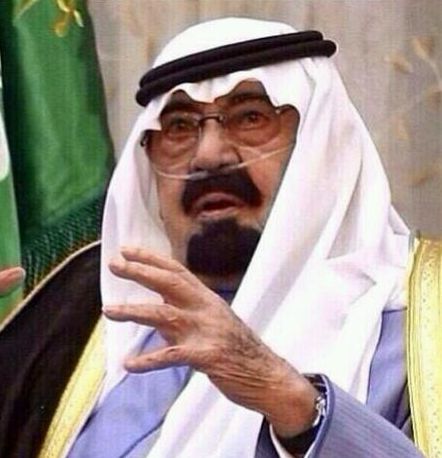Saudi King Abdullah said ready to abdicate over ill health, as ISIS strikes the kingdom’s border
Abdullah bin Abdulaziz, 91, the Saudi monarch who worked tirelessly to inch his hidebound, ultra-conservative kingdom into modern times, is gravely ill and reported by debkafile’s sources ready to abdicate. He hands the reins of government of the world’s biggest exporting nation to two successors.
Conscious of his failing health, Abdullah spent the past year organizing an orderly succession to maintain regime stability. He lined up his half-brother, Crown Prince Salman, 78, to sit on the throne. However, since he is believed to suffer from dementia, the next crown prince Muqirin, 69-70, will rule the realm in practice. Announcement of the abdication may be delayed by princely disputes, causing a political crisis which the ailing king labored to avert.
Coinciding with the news of the impending changeover, three Saudi guards, including Gen. Odah al-Balawi, commander of the northern border guard, were killed Monday, Jan. 5, by ISIS terrorists, two wearing bomb belts, who were attempting to infiltrate the kingdom. The attackers, apparently armed with intelligence on the general’s movements, caught him in ambush. Four attackers were killed in the clash, two by suicide.
This incident underlined one of the dangers besetting the oil kingdom, the Islamic State and its advantage of local tactical intelligence.
According to Gulf sources, the king is critically ill with cancer of the lungs. Two American specialists have been rushed over to treat him.
In March 2014, he arranged to have Prince Muqrin promoted to third in line to the throne, in the face of rival factions in the royal house. But earlier, in May 2013, he elevated his own son, Muteb bin Abdullah, 62, to Minister of the powerful National Guard. The king also blocked the path of Crown Prince Salman’s son Prince Mohammad, to deputy defense minister, which was to have been a springboard to the top post when his father ascended the throne.
Last March, when US President Barack Obama visited Riyadh, Abdullah’s failing health was inferred from a photo which showed him connected to an oxygen tube. In later releases of the photo, the tube was blurred.
In terms of its security, the crisis catches the Kingdom of Saudi Arabia in one of the most perilous periods of its short history. Riyadh has been watching Iran’s acquisition of nuclear weapons with extreme alarm and no faith at all in US-led international diplomacy to contain its plans.
The Saudis see Tehran as a regional menace which is in the process of trampling their closest neighbors by means of allies and surrogates – Syrian ruler Bashar Assad, to the north; Hizballah in Lebanon and the Huthis of Yemen to the south.
The Islamic State of Iraq and Levant and its leader Abu Bakr al-Baghdadi has not only invaded Iraq and Syria but is also eyeing Saudi Arabia. Seen from Riyadh, the oil kingdom is beleaguered at every hand.
At home too, the Saudis share the concerns of Western countries that jihadists returning home from fighting with ISIS will unleash violence to overthrow the royal house.
Since the “Arab Spring”, the Saudis have regarded the Muslim Brotherhood and its Palestinian offspring, Hamas, as enemies.
One of Abdullah’s key innovations, in addition to the small steps he introduced toward improving the status of women, was the transparency of the monarch’s state of health. This openness was unheard off in previous reigns. His abdication, when it takes place, will also break with tradition. Former kings relinquished the throne only when they died.


